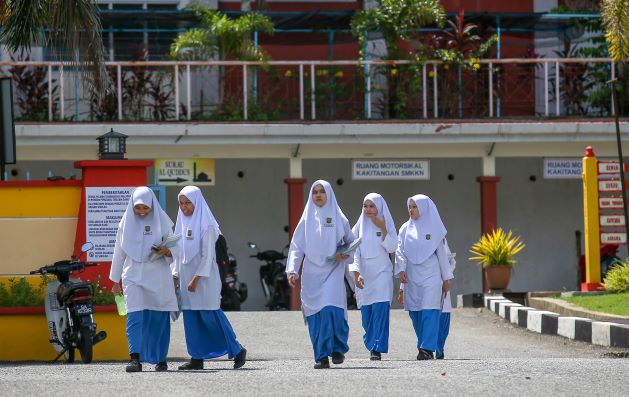By Siti Fatimah Azzahra
œPeriod spot check sparks outrage https://news.iium.edu.my/?p=151752
The news feature on period spot checks by Marissa Nazeera holds a conducive argument against such act. It gives an alternative point of view on period spot checks that have not been discussed openly in previous days. The issue has been going on for a long time and the writer put out that not many people are aware of the exceptions on fasting for women on menstruation during Ramadan.
A feature that starts as a soft news on schools that performed period spot checks during the holy month of Ramadan has now drawn attention of many people. Based on the article, the writer examines the people, places and things that have influenced the community and culture.
The topic of the article is very suitable for a news feature that follows the latest events and issues that are currently going on. People finally get to read a write up that discusses an issue that rarely gets a debate in a mass audience. The overall write-up by Marissa is very satisfying to read as the writer examines the issue generally and not just picking up on a particular school.
In the beginning of the article, the writer said, œnot many of us are educated or aware that not all Muslims are obliged to fast under certain circumstances. In my opinion, the sentence just slapped people who acted dumb as if women should fast 30 days during Ramadan when it is natural that women get their period once in every month and simply do not ask for it.
Plus, to the extent of being called uneducated for not knowing such basic knowledge about women and their period is kind of humiliating.
Apart from that, the writer mentioned that there are activities or ibadah that women cant perform while in their menstruation period and that is why their warden wants to do a period spot check to ensure they are truthful to their claims.
Besides, it is believed what the writer meant to say is that the girls could have lied about having a period at the moment to escape from those activities and ibadah. Hence, the reason for the wardens to execute the period spot check.
However, it is agreed when the writer stated in her article that, œEven if the students were telling lies or even nothing but the truth, the teachers and wardens have no right to go beyond such extent. The act of spot checks on periods among school girls is going rather too far to the point of violating one’s privacy and rights.
Nonetheless, there are only one authoritative figures that are found in the article which is Mufti of Penang that has cited as against period spot checks be carried out in schools. The writer explained that the reason behind such a statement is that the period spot check is not the right practice that could only leave young girls feeling traumatic in their process of development.
Besides that, the writer also includes a law that is in line with the issue. Period spot check is wrong and the writer argued that not many people are aware that there is a law to support the argument. The writer quoted the specific law meant for such an act and also explained what could happen to those who get sentenced with this code of law.
In the article, the writer wrote:
Section 354 of Penal Code had stated that this action can be understood as a crime to assault or the use of criminal force to another person with the intention to violate their modesty. It has also been provided that such an action can carry a sentence of imprisonment of a maximum of ten years and or a fine and or whipping.
This quotation is not just informative but at the same time serves as a warning. Such behaviour would violate other people’s privacy and would be construed as misuse of the authority.
This article holds a great human interest story and will benefit a lot of people in many perspectives such as in education, law and human rights. This is one of the issues that rarely get exposed in the media, therefore needs more awareness to be created for the public to understand the situation.
Growing-up kids at schools are not sure of what is supposed to be their rights when it comes to period spot checks; they just leaving it to the school authorities thinking they would have done what is right.
Until now, when some school kids started to speak up, then they realised that what has happened all these days should not have happened if they have the knowledge about their rights to privacy.
Another part that interests the readers is how much Islamic perspectives are put in this article. The targeted audiences are mostly Muslims and it is very good for the writer to remind the readers the importance of seeking knowledge and wisdom behind every teaching of Islam.
The writer highlighted that “intention does not justify means” and people should not force an ibadah upon others. It is our responsibility as Muslims to always remind each other to do good deeds and avoid bad things, but it is not our right to impose on people to do good.
The writer ends the article by adding persuasive idea as follows:
Period spot checks and gropings should not be normalised in our country, and shall never be made a norm at all even in the name of Islam. Islam does not teach us to be doubtful against one another and to always respect each others boundary.
The last paragraph is quite a good ending for the story that wraps up all issues mentioned to a conclusion where period spot checks among schools in Malaysia should stop. There are more issues rather than period spot checks in schools that need the focus to improve our education system towards building a better future.***
